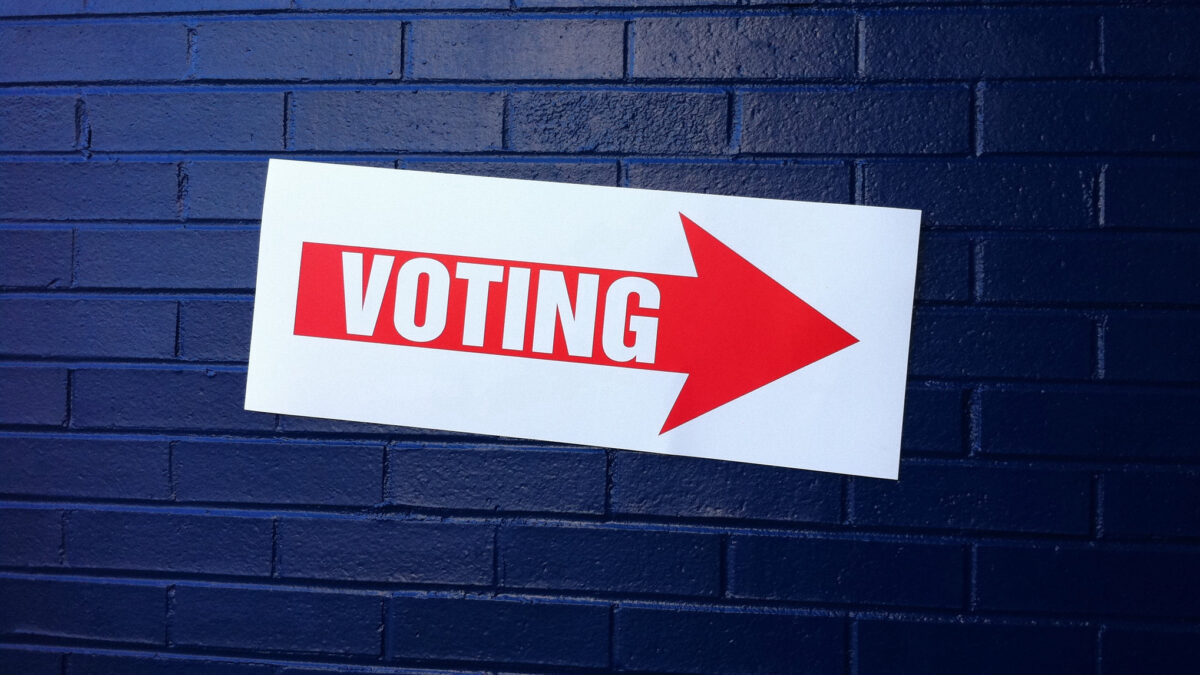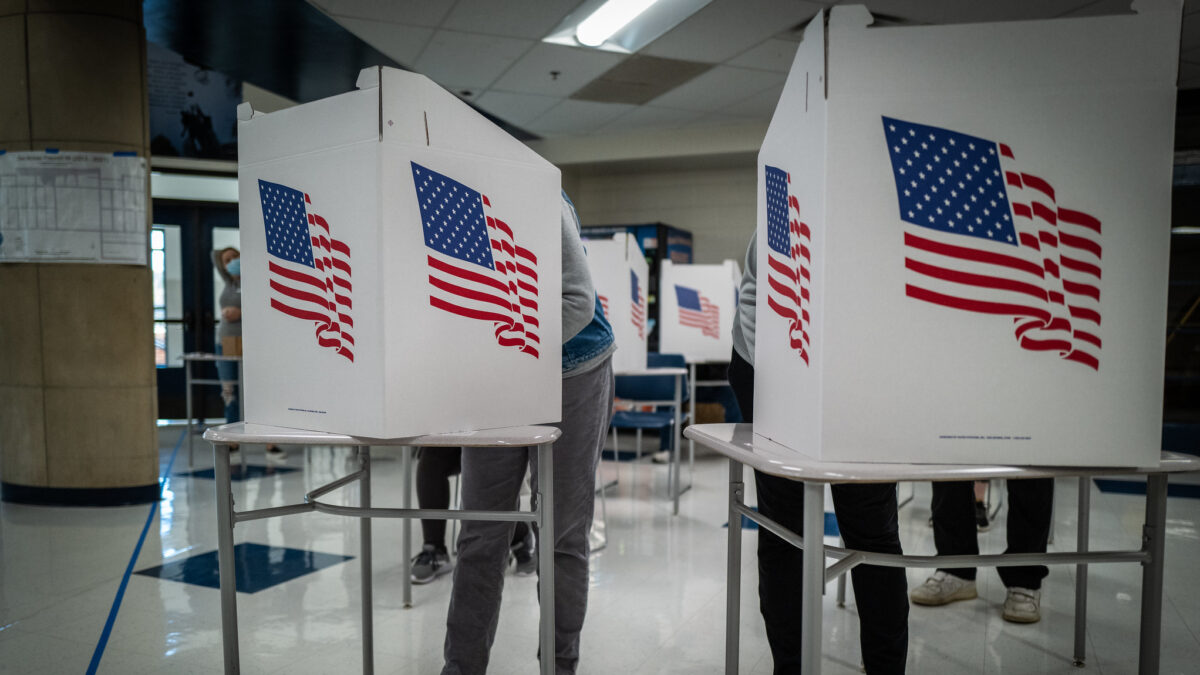
You remember the face: Set in a frown at once sympathetic and determined, her eyes pleading, bearing a simple exhortation to the world. It was the face that launched a thousand tweets, as well as a significant number of aircraft. I speak, of course, of Michelle Obama, and her image frozen in amber to define the moment when Americans of all creeds and colors demanded in one voice: #Bringbackourgirls.

The girls weren’t “ours” in a literal sense. They were kidnapped from the Government Secondary School in Chibok, Nigeria by the Islamic terrorist group Boko Haram. But the first lady, celebrities, and multitudes seemed to speak to an empathetic extension of the parental protective instinct, and a sense of ownership in which the United States and the world at large would get involved in freeing these girls and bringing their monstrous captors to justice.
More than four years later, however, one has to question the authenticity of these commitments. This is not to say the problem has gone unaddressed: the Nigerian government has, with the help of the Obama and Trump administrations, freed hundreds of hostages from Boko Haram, many of whom have been traced to the Chibok kidnapping. Their subsequent treatment, however, is something no one has been concerned about—although it was appalling, and occurred within our own borders.
Earlier this year, a team of reporters from the Wall Street Journal published a story detailing the treatment of ten of the women who escaped or were rescued from Boko Haram then came to the United States to attend school. With its cast of characters including fervent and deluded nonprofit leaders, a scheming attorney, and a colorful congresswoman, the story feels like one Tom Wolfe might have written, if he forgot to include humor.
A cautionary tale of disgraceful, predatory philanthropy unfolds. After all the goodwill that was marshalled, the awareness that was raised, and the money that was collected, the end result of #Bringbackourgirls for these women was continued harassment and exploitation, not liberation.
Out of the Fire Into the Frying Pan
After their escape from Boko Haram, these ten women immediately sought to continue their education, enrolling in special scholarships offered at the American University of Nigeria, in the northeastern state of Adamawa. Soon after they began school in the fall of 2014, the human-rights lawyer and activist Emmanuel Ogebe, a Nigerian national influential in Washington, descended on the campus. Ogebe demanded the school’s administrators allow him to bring a group of women from Chibok to weekend meetings in Nigeria’s capital, Abuja.
The girls were divided into two groups, and after some time in Abuja, were sent back to school—at the Mountain Mission School in Grundy, Virginia, and the Canyonville Christian Academy in Canyonville, Oregon, respectively. These schools are not, in fact, on the way from Abuja to Adamawa, nor places a person could enroll in on a spur-of-the-moment basis. This indicates Ogebe never intended to return these girls to school in Nigeria, as he had promised.
Nor did he allow them to settle into their new American schools. Within a few days he was taking them to New York for their first of many speaking engagements and press conferences. Ogebe brought the women around the country to raise money for the ostensible purpose of supporting their education—for which, remember, they were receiving scholarships prior to being shanghaied out of Nigeria—all the while insisting that he alone keep track of the money.
Ogebe was not alone in attempting to exploit these women and their story, the Wall Street Journal reporting shows. So did nongovernmental organizations like the Jubilee Campaign, which eventually cut ties with him. Politicians like Rep. Frederica Wilson, a Florida Democrat known for her hats, worked with Ogebe to arrange meetings and speaking engagements featuring the girls.
Doug Wead, a former White House advisor who later spoke out against Ogebe, admits that at the time he encouraged the girls to market their story to Hollywood before the public lost interest and they missed his their opportunity to gain from it. That these women might not want to relive their experience with Boko Haram or see it on screen, and might rather be left in peace to finish their schooling and rebuild their lives, evidently did not occur to any of the people who used them for fame and fundraising.
When the girls expressed exactly this preference to him, Ogebe threatened to send them back to Nigeria, where Boko Haram could kill them, the Journal says. He thus took advantage not only of the students’ status but their ignorance regarding their visas, and the understandable, although unrealistic, fear of Boko Haram finding them again.
By the end of 2015, Ogebe had uprooted the ten young women again, putting them in new schools with new host families. One, Kauna Bitrus, had had enough, and began reaching out to journalists and activists to plan her escape. Eventually, Department of Homeland Security and FBI agents, who had been investigating the case as a potential kidnapping, extracted the girls to a safe house, where they were interviewed about Ogebe and allowed to contact their families. More than a year after their escape, they were right back where they had started: escaping grotesque captivity and exploitation, looking for ways to start their lives anew.
This Is Not an Isolated Case of Philanthropy Gone Wrong
The story the Journal tells is appalling, but hardly unfamiliar. The cynical opportunism and thoughtlessness with which these women were treated are depressingly endemic in the world of philanthropy, particularly in an era in which it is so easy for people and organizations to trade on a veneer of virtue, rather than integrity or effectiveness.
Charity, while a noble pursuit, is also among the most insidious and irresistible of paths toward vanity, a perversion Jesus himself recognized and warned against in Matthew 6:2. Serving the Lord and one’s fellow man can easily transmogrify into serving oneself.
Too often, when we are filled with self-righteousness and zeal, the reward centers of our brains abuzz with the congratulations and admiration of others, we don’t stop to ask who, if anyone, is ultimately helped by the money we are raising and the service we are performing. Philanthropy becomes an exercise in self-realization rather than solidarity, living out one’s own story rather than helping someone live out hers.
This is the error at the heart of Ogebe’s tragedy. In a certain sense he is the logical conclusion of #Bringbackourgirls, a movement sustained in no small part by people seeking to increase their social cache through signaling their virtue and worldliness, unconcerned about what this sudden notoriety would do to the girls.
It’s tempting to blame social media for this situation. Those of us who remember episodes like “Kony 2012” will recognize such phenomena as frequent products of the Internet Age that, give or take an Ice Bucket Challenge or two, seldom accomplish much. But while social media amplifies and democratizes self-serving philanthropic endeavors, hashtag-activism is but one manifestation of a far older pathology.
We Can All Be Emmanuel Ogebe
The sad fact is that there are and always will be legions of Emmanuel Ogebes on all sides of philanthropy, forever mistaking self-congratulation for generosity. If you donate clothing to the developing world simply to scratch a charitable itch, without asking whether you might be helping depress a local industry, you are Emmanuel Ogebe. If you build a charity element into your business and use it as a marketing ploy without asking whether it is actually helping anyone, you are Emmanuel Ogebe. If you cut off paths to adoption for special-needs children to cast yourself as a warrior for LGBT rights, you are most certainly Emmanuel Ogebe.
The way to escape this temptation is not to eschew charity entirely, but to remind ourselves of our weaknesses and guard against the temptation toward moral superiority. It means a return to genuine service of others, allowing our resources, gifts, and labor to lift others up rather than ourselves. Most of all, it means seeking to intervene on the local level, both in our own communities and around the world.
By this I do not mean we can only serve those within our own cities (although that is a smart place to start), but that we should seek proximity to the people we serve and the problems we address, choosing above all to invest in individual acts of kindness and service rather than trendy boondoggles. While it is easiest to do this in one’s own community, new technology and organizations—check out DonorSee—are making it possible on an international scale as well.
We cannot remove the temptation toward vanity that makes it possible for such efforts to go awry, but we can make an effort to counteract it. If we don’t, the end result is one the Chibok schoolgirls know all too painfully: prolonged suffering for the most vulnerable people in our midst, and a corrosion of our own hearts.









